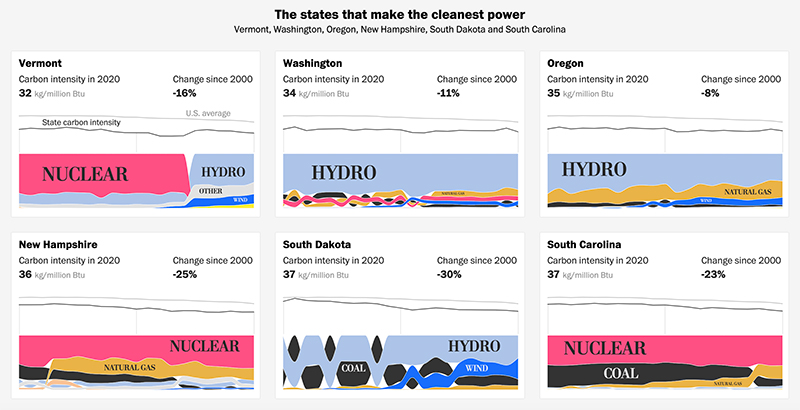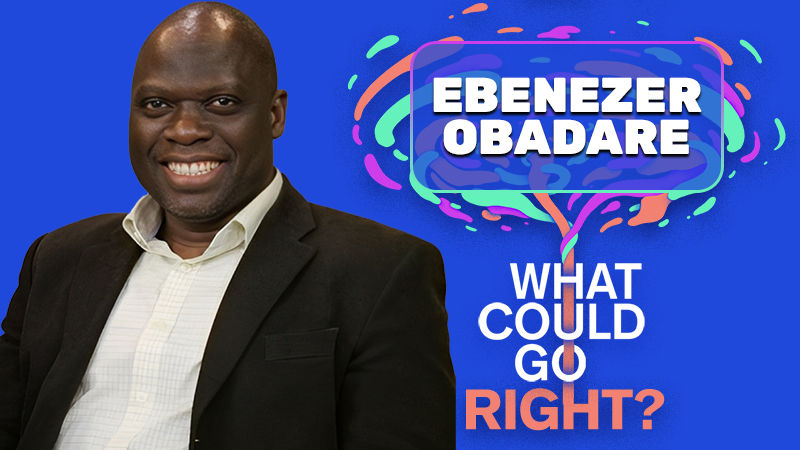Volcanoes are erupting in The Philippines, but on-fire Australia received some welcome rain. The Iran war cries have been called off and The Donald’s military powers are about to be hamstrung by the Senate. Meanwhile, his impeachment trial is starting, and we’re all on Twitter for a front-row seat.
What Could Go Right? New protections for women in Uzbekistan
Domestic violence is now a criminal offense for the first time.
This is our weekly newsletter, What Could Go Right? Sign up here to receive it in your inbox every Thursday at 6am ET. You can read past issues here.
New protections for women in Uzbekistan
Until this month, Uzbekistan remained one of the only countries in the world that had no laws establishing domestic violence as a criminal offense. While the government only recently began to track domestic abuse rates, advocacy groups and scholars say the problem is rampant there. A Human Rights Watch report relayed that in the late 1990s, one Uzbek government-conducted survey found that “over 60 percent of female respondents considered domestic violence to be a ‘normal situation.’” No shelters for abused women existed until 2019, a particularly harsh circumstance in a country where many hotels won’t give out rooms to women on their own.
While the issue is far from solved, in recent years the political will to address domestic and other gender-based violence in Uzbekistan has finally sprouted. On April 6, after a few years in which the legislation laid in draft limbo, the Uzbek Senate unanimously passed several amendments to its criminal code, officially criminalizing domestic violence. (National outrage over a sexual abuse case in a girls’ orphanage gave the legislation the final push.) Uzbekistan is the fifth country in Eastern Europe and Central Asia to do so, after Georgia, Kyrgyzstan, Moldova, and Ukraine.
The amendments to Uzbekistan’s criminal code, Amnesty International reports, also “establish liability for the harassment and stalking of women, make early conditional release for sexual offenders impossible, and exclude ignorance of the age of sex crime victims as a way to avoid harsher criminal punishments.”
These recent changes are only the latest attempts from Uzbek President Shavkat Mirziyoyev’s administration to improve women’s rights in the country, including introducing a hotline, protection orders, and shelters for victims of domestic violence in 2018–19. In 2018, the government also adopted two laws on equal rights and opportunities for women.
The changes are part of a larger movement to build a culture of human rights in the country, according to a 2020 report from the United Nations. In addition to gender equality, it noted some progress related to political prisoners, incarceration treatment, torture, human trafficking, and forced labor. (The topic of LGBTQ rights, though, was pushed back on; delegates from Uzbekistan said at the time that “decriminalization of same-sex relations had sparked outrage in the population and did not garner consensus.”)

In this video, Uzbek men read women’s accounts of being abused aloud. It was created by the European External Action Service, the diplomatic service of the European Union, in partnership with the Uzbek government-funded Nolalar (“moans” in English) campaign, which aims at drawing attention to gender-based violence. An accompanying website gives women direction on what support is available to them.
Laws, of course, do not radically transform societies overnight. Even the announcement of the new amendments on the Uzbek Parliament website, according to Amnesty International, came with a statement about “strengthening the institution of the family,” a position that prioritizes the preservation of a marriage over the protection of a battered woman.
But they are part of the process. The Internet, for all its negative coverage in the United States at the moment, is inescapable in a good way. Uzbek journalists report that patriarchal and misogynistic attitudes are changing in the capital, Tashkent, and in other cities, especially among the youth, who have grown up exposed to other cultures online.
Movement is slow, but slow movement is welcome, especially when you consider the alternative: a draft law on domestic violence was rejected in nearby Belarus in 2018, with President Alyaksandr Lukashenka commenting then, “A good belting could sometimes be useful.” There is still a way to go, but Uzbekistan has taken several first steps forward.
Quick hits
Despite the reputation of the broke Millennial, they’re actually financially thriving, writes Jean M. Twenge in The Atlantic. By and large, they’re well-educated, with rising incomes and homeownership rates akin to those of Boomers and Gen Xers at the same age. The data here is fascinating, as is Twenge’s focus on why it’s imperative the sour narrative catches up with the more positive reality. A must-read especially for my fellow, maybe-poor-maybe-not Millennials.
The last few weeks have seen one bit of fantastic malaria news after another. First, the Mosquirix vaccine, the first malaria vaccine to be developed, approved, and distributed, made a dramatic reduction in malaria cases and hospitalizations in Kenya, Malawi, and Ghana. Then, Azerbaijan and Tajikistan were declared malaria-free by the World Health Organization (WHO). Now, Ghana has become the first country to approve the R21 vaccine for use, quickly followed by Nigeria. The R21 malaria vaccine has been shown to be up to 80 percent effective in trials, much more than Mosquirix, so it will be exciting to see the effect that the distribution of both combined will have. The WHO and other African countries also currently have R21 under consideration for approval.
Below in the links section, a new coral reef discovery, a Parkinson’s breakthrough, and more.

How can the US decarbonize its electricity? These six states have the lowest carbon intensity in the country, The Washington Post reports, and their use of hydroelectric dams and nuclear power might offer a roadmap for the rest of us.
Demanding More: Politics in Sub-Saharan Africa | S4 E10

Are the tides shifting in Africa? What direction is the continent’s progress toward good governance headed? And how should we understand competing international interests and investment there? Ebenezer Obadare, a Douglas Dillon senior fellow for Africa studies at the Council on Foreign Relations, joins us to examine Nigeria’s contentious election as well as China’s, Russia’s, and the US’s involvement in Africa. Plus, we look at changes in airport security, US unemployment, and inflation. | Listen to the episode
Progress, Please
(Found good news? Tweet at us @progressntwrk or email.)
Other good stuff in the news 🔋
Energy & Environment:
- One of the biggest battery recycling plants in the US is up and running | Canary Media
- Fast EV chargers to nearly double on US highways under expansion plan | The Wall Street Journal
- Europe’s most powerful nuclear reactor kicks off in Finland | AP
- New coral reef discovered in Ecuador’s Galapagos Islands | Reuters
Public Health:
- Cancer and heart disease vaccines ‘ready by end of the decade’ | The Guardian
- A Parkinson’s ‘game changer’ could lead to new diagnostics and, someday, treatments | STAT News
- Single dose of Omicron-targeting vaccines to become main Covid-19 shot in US | The Wall Street Journal
Science & Tech:
- Promising new AI can detect early signs of lung cancer that doctors can’t see | NBC News
- A knee replacement that talks to your doctor? It’s just the beginning. | The Wall Street Journal
- New tech could one day scrub ‘forever chemicals’ from tap water | The Washington Post
- Bacteria can be engineered to fight cancer in mice. Human trials are coming. | MIT Technology Review
Politics & Policy:
- Michigan governor signs gun control bills passed in response to university shooting | The Detroit News
- Maryland set to adopt one of the biggest offshore wind goals in US | Canary Media
- China and Brazil to cooperate in stopping illegal trade fueling deforestation | Climate Home News
Society & Culture:
- Attitudes toward LGBTQ people are slowly shifting in Japan. | The Washington Post
- Rising enrollment numbers show young people want to be teachers | The 74
- While some students skip college, trade programs are booming | AP
- Record number of Americans say they’re politically independent | Axios
- Egyptian female Islamic chanters break into male-dominated field | Reuters
Economy:
- Does no-resumé, no-interview hiring work? New data say yes | Reasons to Be Cheerful
- Wage growth returns with cooling inflation | Axios
- Stop the gloom and doom. The economic recovery is strong. | The Washington Post
- Husbands and wives earn about the same in a growing share of US marriages | Pew Research Center
- No degree? That’s no problem for these government jobs | Reason
- The lessons from America’s astonishing economic record | The Economist
- America’s economic outperformance is a marvel to behold | The Economist
TPN Member originals 🧠
(Who are our Members? Get to know them.)
- Why China won’t invade Taiwan anytime soon | Ian Bremmer
- What are America and China fighting about, anyway? | Thomas L. Friedman
- Your email does not constitute my emergency | Adam Grant
- Why people are fleeing blue cities for red states | David Brooks
- Do the kids think they’re alright? | Jonathan Haidt & Eli George
- Why some researchers think I’m wrong about social media and mental illness | Jonathan Haidt
- Will Washington halt the global renaissance of nuclear power? | Ted Nordhaus
- What self-driving cars should teach us about generative AI | James Pethokoukis
- Is economic growth the magic wand for ending poverty? | Charles Kenny
- Don’t expect mass adoption of electric cars anytime soon | Ted Nordhaus
- What we get wrong about progress and polarization | Zachary Karabell
- The pandemic didn’t upend US geography | Richard Florida
- Ben Ansell on why politics fail | Yascha Mounk
- The expulsion of two Tennessee Democrats | Isaac Saul
- The evolutionary origins of a good society | Nicholas A. Christakis
- Can Substack Notes be a better Twitter? | Robert Wright
- The promise and peril of generative AI | Diane Coyle
- Only 60% of Black boys in Michigan graduate high school on time | Richard Reeves
- Non member add: The moral center is fighting back on elite college campuses | David French
Department of Ideas 💡
(A staff recommendation guaranteed to give your brain some food for thought.)
The Dangerous Rise of ‘Front-Yard Politics’ | The Atlantic
Many public crusaders are private reactionaries.
Why we picked it: What happens when an emphasis on language and virtue-signaling actually stands in the way of material progress? We get situations like the ones Derek Thompson describes in this piece: DC littered with “We welcome refugees” signs alongside a government directive advising them to leave the DC area, as housing is too expensive. (Cue facepalm.) I think “dangerous” in the title is overblown, and the writer, as a liberal, is mostly focusing on liberals, but it’s a good critique nonetheless. —Emma Varvaloucas
New Member Alert

Richard V. Reeves is a senior fellow at the Brookings Institution, where he directs the Future of the Middle Class Initiative and co-directs the Center on Children and Families. He is the author most recently of Of Boys and Men: Why the Modern Male Is Struggling, Why It Matters, and What to Do About It. He writes for a wide range of publications, including The New York Times, The Guardian, National Affairs, The Atlantic, Democracy Journal, and The Wall Street Journal.
Until Next Time
The second rule of Secret Congress is probably also worth noting here. 🤐


